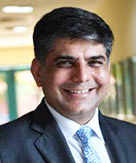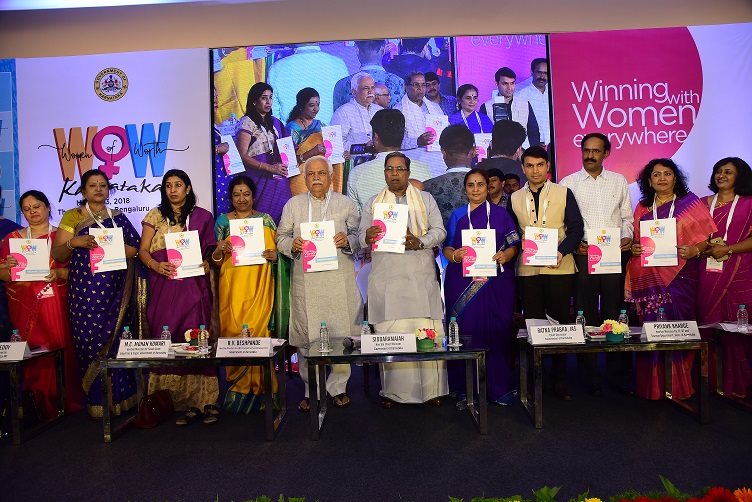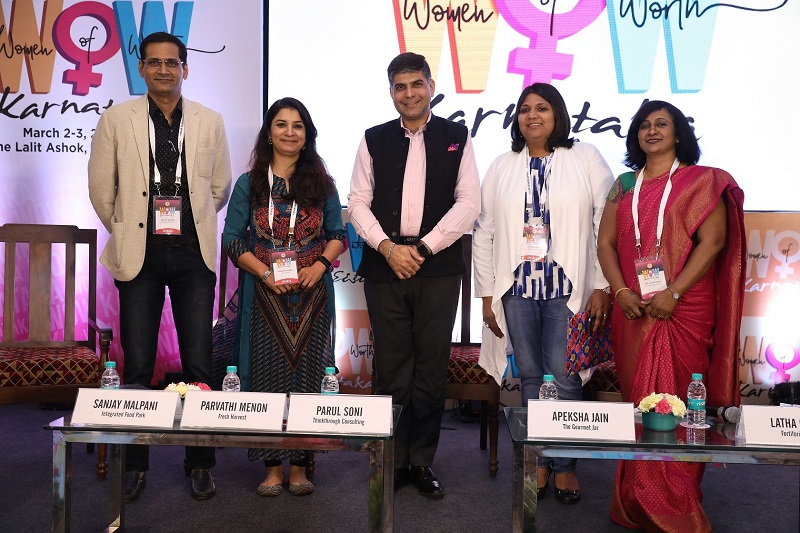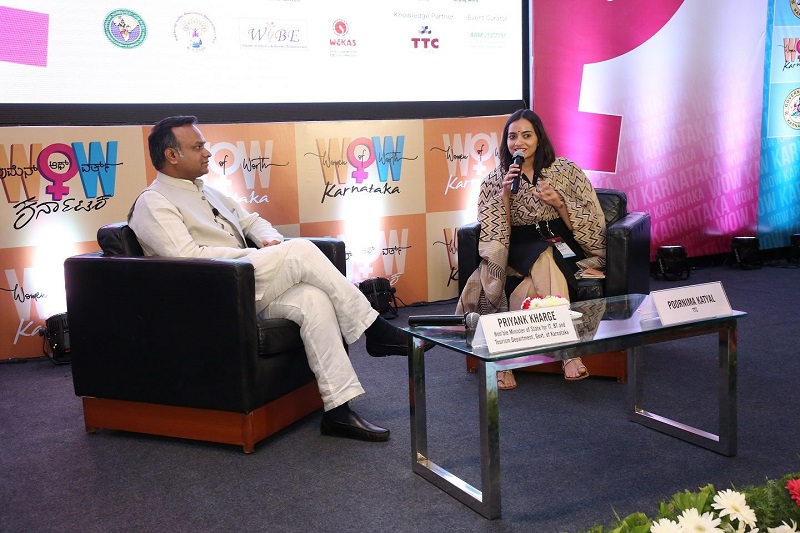
|
TTC Newsletter | April 2018
|

|

Parul Soni
Global Managing Partner, TTC
|
Gender equality and women entrepreneurship initiatives
In February, we published our first newsletter and received an overwhelming response. Our well wishers, partners, clients and other stakeholders were happy to see our success story and we saw an outpour of heartfelt messages. Continuing the momentum, this is our second edition of the TTC newsletter and this month's spotlight is on our definitive efforts towards promoting 'Women Entrepreneurship', with some impactful results.
In 2016, we initiated the first ever platform for Indian Women Entrepreneurs to come under one roof and engage with their peers, corporates, investors and government. We named it ThinkBig 2016 - because this Asia's Largest Women Entrepreneurship Summit actually encouraged the women entrepreneurs to take big steps, not only in thinking, but also in their actions. The year after, ThinkBig 2017 was bigger and better with stimulating panel discussions, thought provoking movie screening and one to one workshops. The 2017 event, among others, established a few promising collaborations between some of the large corporates and women entrepreneurs, and we are proud to have been able to facilitate that through ThinkBig. We started our joyful ride in this area and have not looked back since. We have hosted Chinese Women-owned Businesses Delegation in India to strengthen the inter-country tie, and start conversations on mutual business opportunities. In a separate initiative, we also shared our knowledge and resources with the Government of Karnataka during the International Women's Week to honor women achievers from all walks of life.
We are committed to taking more such initiatives thinking through our ideas, and more actively engaging with various dimensions of gender equality and women entrepreneurship in the coming months.
|
|
|
|
|
|

|
|
Social protection of informal workers
|

Vijay Ganapathy
Partner and Leader for M&E and Impact Assessment

Ranjit Prakash
Senior Advisor
|
Guarantee of Basic Income' and 'Health care' to the people of the country is considered to be the critical pillars of the Social Protection. In India, the situation is ripe to guarantee, at least the basic income to the construction workers, second largest workforce in the informal sector, in view of the available resources and the entitlement provision. Once successfully implemented, this can also become a model for extending social security to the remaining workforce as well as other vulnerable groups of the society. However, effective implementation and desired result are dependent on the political will of the ruling masters as the sustainable implementation strategy would require multi stakeholders' meaningful dialogue for generating consensus and support on the contours of income security and the implementation processes.
 on their views on tackling the issue.
on their views on tackling the issue.
|
|

|
|
Employee volunteering in India
|

Ajay Pandey
Partner and Leader for CSR, Strategy and Performance Improvement

Elaine Colaco
Manager- Advisor
|
Employee volunteering has become a priority for many corporates in India. Companies recognise that employee volunteering (EV) is a powerful tool to engage employees, enhance their personal and professional development while also leveraging these internal stakeholders to create a positive impact among the communities within which they operate.
Therefore, Corporates are attempting to attract and encourage employees to volunteer for their Corporate Responsibility (CR) initiatives through structured programmes. This however, is not without its challenges.
Employees often have their own preferences about how to volunteer and when to volunteer. Or, they may simply have other priorities which override their willingness or ability to provide time and financial resources to causes promoted by their company.
 on know how employees can volunteer in a structured manner
on know how employees can volunteer in a structured manner
|
|
|
|
|

|

|
|
The two day event was part of a series of activities being organised by the State of Karnataka to commemorate International Women's Day, which was on 8th March 2018. The Summit enabled about 600+ dynamic participants including Women Entrepreneurs, Multinational Corporate Buyers, Government Officials, Multilateral and Bilateral Organisations, Investors - Banks, Venture Capitalists and Industry Thought Leaders engaged in inspiring and interactive sessions. The key highlights of the event included Plenary Talks, Panel Discussions, FireSide Chat, Buyer Seller Meet, Workshops, Heritage & Textiles show (Fashion Show) and Exhibition.
Thinkthrough Consulting was the knowledge partner of the event and worked closely with the panelists for the relevant delivery of the messages and key takeaways.
|

|
|
|
TTC establishes its strategic presence in Bangladesh
|
|

Foyzul Bari Himel
Country Coordinator,
Bangladesh
|
Bangladesh is emerging into a developing nation in the areas of economic, social and human development. As a result, the focus of the development agencies, are more into provision of technical assistance rather than grants or donations. Government of Bangladesh, unlike the previous era, is looking towards acquiring fee-based consultancies and knowledge management services. TTC has now established a firm presence in Bangladesh, and will be able to support the Government as well as the development agencies through creative and innovative strategies and solution that have sustainable impacts on crucial development indicators of the country. With our vast experience and international expertise in public financial management, health, nutrition, education, WASH, renewable energy, sustainability and climate change, and capacity development, especially for government officials, we are well-geared up to support Bangladesh, and also complimenting the local boutique firms - collaborating with them whenever required.
Down the line, financing in development sector will be a challenge for large national and international NGOs in Bangladesh, due to the shrinking grant/donation funds from external benefactors. Going forward, we will use our capabilities to arrange funds from private foundations or corporates, by creating shared value for these funders and the Civil Society of Bangladesh.
|
|
|
|
|
JCB India Limited
JCB is one of the leading earthmover manufacturing company in India. JCB and its charity organization LBCT has been actively engaged in community development works, even before the CSR was mandated in India. JCB-LBCT has been working on quality education, women empowerment, livelihood and improving civic services in the community in and around its plant locations in Ballabgarh, Jaipur and Pune.
TTC has conduced impact and need assessment and also developed strategy program for the next five years. Apart, TTC has been working with JCB-LBCT team for improving their capacities for bringing effectiveness in their programs.
|
The Millennium Alliance
The Millennium Alliance (MA) seeks to catalyse innovation in the country by awarding innovation grants to applicants across six key thematic areas- Education, Water and Sanitation, Health, Agriculture (Food Security), Climate Energy (Climate Change) and Others. TTC carried out a mid-line assessment of the MA as well as provided support in monitoring whether or not the grant recipients were meeting agreed upon milestones. TTC also carried out a Consolidated Impact Assessment of MA after four rounds of grant awards.
|
National Stock Exchange of India
The National Stock Exchange has a vision to implement programs across various locations in India to support various socially beneficial causes such as 'Primary Education', 'Elder Care', 'Sanitation & Safe Drinking Water' etc. as part of its CSR policy. TTC is supporting the NSE is identifying CSR programs and activities, selecting credible and capable partners to implement the programs and further oversee, monitor and assist in managing the implementation of the selected CSR programs and activities.
|
|
|
Our vision: "To be the preferred advisory firm for sustainable development initiatives"
|
|
|
|




















